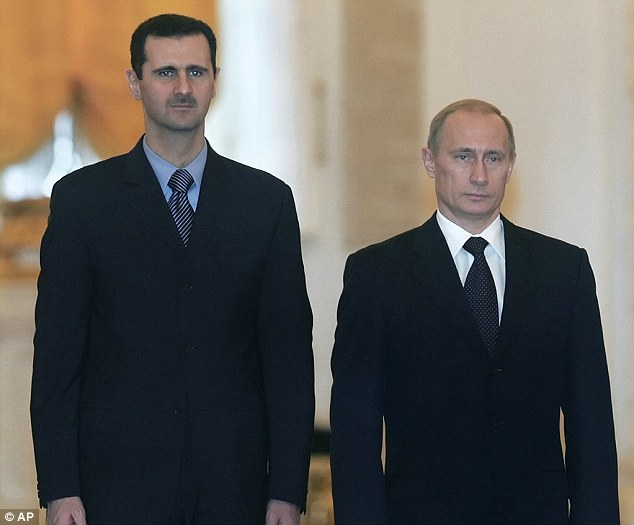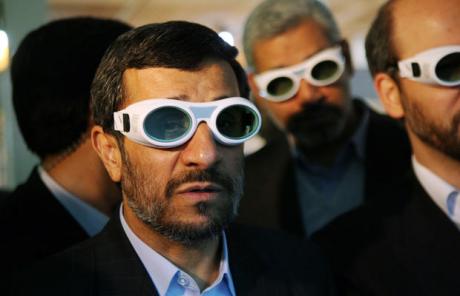There is a large flurry of speculation in intelligence/defence circles about Russia’s intentions in Syria. The usually staid private intelligence aggregator Stratfor seems to have had an attack of silly season, headlining an August 31 assessment rather breathlessly, “Will Russia Intervene in Syria?”
It’s possible, of course, even given that Russia is facing a terrible economy and an unstable situation in Ukraine, but not highly likely, and for Russia (and everyone else) it would be a dangerous play. Russia is exhibiting a strong tendency to push its luck these days, but an even greater one to lead with its chin.
In a phone conversation with U.S. Secretary of State John Kerry over the weekend, Putin apparently admitted that Russia is giving Assad “very serious support and equipment, and training of military personnel, weapons.”
The real question here is what exactly is meant by “intervention.” If the word is being taken to mean commitment of ground troops to actions like Fallujah in 2006, then it probably isn’t in the cards.
Last week’s assessments by Stratfor and Russia specialist Michael Weiss are based on the sighting in the Bosphorus on August 22 of a large Russian landing craft of the Black Sea Fleet, the Nikolay Filchenkov, loaded to the gunwales with “at least four” BTR-80 armoured personnel carriers on deck, presupposing a full cargo hold below (the ship can also carry troops, whether it did or not is unknown). Weiss also noted that some of the BTRs recently spotted around Latakia were – unusually – latest model BTR-80As and wearing Russian military numbers (it is possible, of course, that they simply didn’t bother giving them a new paint job).
Both Weiss and Stratfor also note that Russian voices (at least nobody said “ominous Russian voices”) have been heard in the background of Syrian news reports that suggest a context of either training or combat (and Weiss notes that the line between “training/advising” and “combat” has always been a great deal fuzzier for Russia than it is for, say, Canadian special forces in Kurdistan).
The speculation began with another breathless article in Ynetnews.com, a centre-right Israeli news service, headlined “Russian Jets in Syrian Skies”, in which Ynet correspondent Alex Fishman included the following tidbit:
“In the coming weeks thousands of Russian military personnel are set to touch down in Syria, including advisors, instructors, logistics personnel, technical personnel, members of the aerial protection division, and the pilots who will operate the aircraft.”
Meanwhile, Stratfor, having had its breathless moment, concedes that it “has yet to see concrete evidence of expanded Russian participation in the Syrian conflict on the scale suggested by Ynet. In fact, cases of false reporting are common, especially where direct Russian support is concerned.” Assad has his own plentifully good reasons to inflate Russian involvement.
So far, there are no grounds to believe that Russian pilots are indeed flying combat missions in Syrian-marked craft. If it were true, it would take us back to the days of the Korean War, when Soviet pilots in North Korean colours did engage against UN aircraft, except that this battlefield is vastly more complex. But an odd divergence between the Ynet article and the Stratfor/Weiss reports is that Ynet talks mainly about air assets, while the other two focus on ground capacity (and there are still also no grounds to believe there is anything like a significant Russian ground force commitment).
It is also worth noting, as Weiss does, that Russia has had a substantial presence since 2012 and has been providing continuous assistance and materiel to Assad – four BTRs on a landing craft deck do not represent much more than replacements for losses – so what is in question here really is intent: whether they are really about to take a step into combat, air or ground.
Coalition and Assadist air forces have been consciously avoiding each other. Effectively, the war against ISIS has given Assad a free hand to bomb his own people, partly because the U.S. is simply unwilling to engage with his forces, seeing ISIS as its primary enemy, but a good deal of that is also because Assad has active Russian backing. To what extent the Americans needed and continue to need Russian support to keep the Iran nuclear deal in the air is unknown, but it is a good deal more assured that they do not want to risk a confrontation with Russia in the air over Syria.
However, Turkey has now entered the arena and there are reports that Turkish airpower is now engaging ISIS. To what extent Turkish command and control is coordinated with the coalition’s is unknown. Given that Turkish and Coalition political aims in North Syria diverge widely, it may be less tight than you would expect of a NATO member.
What is known is that getting rid of Assad continues to be a priority for Ankara, so the Turks may be less unwilling to engage his airpower than the Coalition is. Shooting down a Russian pilot in a Syrian jet could mean trouble, if the Russians choose to acknowledge that it happened at all.
Airpower aside, it seems certain that Russia is actively stiffening Assad’s defences. Most nations tend to run several foreign policy threads at once, often contradictory, and Moscow has always run a particularly convoluted set, so they may have several motives for doing so.
Fishman suggests that Russia may want to preserve Assad as a barrier against ISIS penetration of Muslim South Russia/North Caucasus, but that is pretty tenuous; ISIS doesn’t need Syria to do that. (Keeping ISIS away from a major foothold on a coastline – which would be an incredibly dangerous development – is something else again, but the Russians, while viewing ISIS as a potential threat in the North Caucasus, are also happy to see it continue in existence where it is, and seem to be channelling their own “hard cases” toward Mesopotamia. They will worry about coastlines when they have to.)
Assad is a Russian interest in the region, but he is hardly indispensable. It may be in Russia’s interest to shore him up as a bargaining chip with a view to throwing him under the bus when convenient, or they may be sustaining him as a gesture of bona fides toward Iran, or simply as an continuing irritant and distraction to the U.S. As in Ukraine, in Moscow’s thinking destabilization equals control. Which raises the question of why, with one non-frozen conflict in East Ukraine heaving uneasily, they would commit to any level of combat in Syria. Since in Moscow’s weltanschauung chaos is a policy tool, that may not trouble them, but they are still not suicidal. The real problems arise when they miscalculate, as they seem to have done with Yanukovych in February 2014, or, memorably, in Afghanistan.
The military addition of NATO member Turkey adds a risk factor. It has ambitions against Assad; it may have ambitions in Northern Syria and the Levantine coast. No one has yet proven that Russia is planning to insert substantial fighting forces into Syria, but if they do, they run several risks, of which probably the greatest geopolitically is an encounter with Turkey. Losing prisoners to any of the rebel factions – let alone ISIS – is a risk of a different nature, but it also exists. Russia tends to be highly cavalier about losses of personnel and has never shown much compunction about lying or suppressing information about them. Casualties can be denied away, and dead men contradict no political stances, but prisoners on display by Islamists, ISIS or anyone else are another matter entirely.
One of the lesser ironies, if Russia should get involved, is that for all the wringing of media hands over it, all of that shiny American equipment that ISIS captured from the Iraqi Security Force is useless to them. Too sophisticated, too fragile, too high-maintenance, no ammunition sources. Russian weapons, on the other hand, are well designed, simple, solid, and idiot-proof, and every rebel group in the region has a ton of them and is using them to effect.




